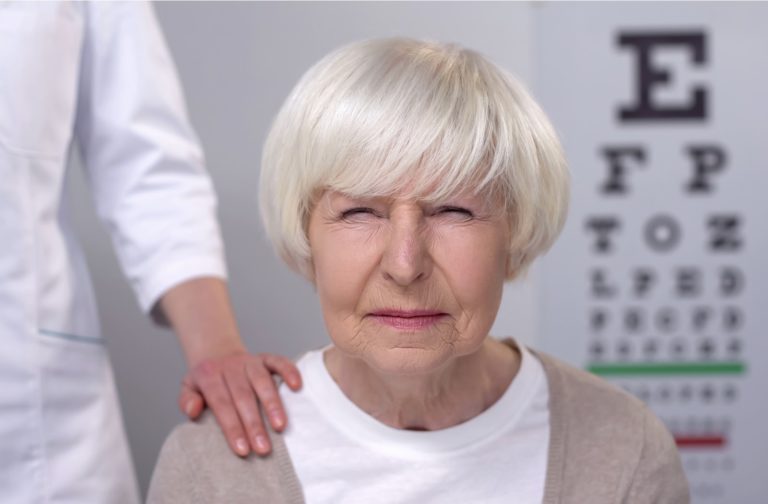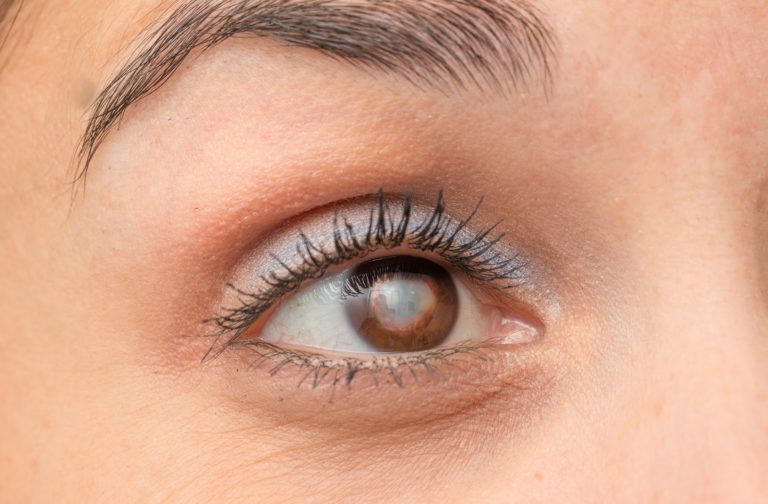If you’re nearing 40 it may be time to start thinking about Cataracts, as the most common cause of cataracts is the natural aging of the eye. Cataracts are a type of eye disease that affects the vision and they tend to get worse over time.
Due to old age, you will develop some amount of cataracts during your lifetime. It may not develop to the point of needing surgery but you will eventually have some form of it. Cataracts are the most common age-related eye condition and the leading cause of preventable blindness. Currently, more than 24.4 million Americans over 40 suffer from cataracts.
The good news is, cataracts can be easily examined and managed by your eye doctor if caught early.
What are Cataracts?
If you have a cataract, it means that the normally clear lens in your eye is “foggy”. Cataracts can affect just one or both eyes and can make your eyes look cloudy. You may notice white streaks or shapes in the eyes, but this is less common.
When a cataract clouds over the lens, your eye can’t focus the way it is supposed to, resulting in blurry vision or vision loss. The degree of blurriness or vision loss you may experience depends on the placement, severity, and type of the cataract.
Types of Cataracts
Several different types of cataracts can appear in one or both eyes and can have mild to severe effects on vision. These include:
- Nuclear cataracts are the most common form of cataracts which are formed in the center of the eye’s lens
- Cortical cataracts usually begin as white “streaks” forming near the edge of the lens and grow toward its center
- Congenital cataracts present at birth and can occur in a variety of configurations
- Trauma-induced cataracts can form anywhere on the lens and often develop into a “flower-petal” shape
- Posterior subcapsular cataracts develop at the back surface of the lens unlike other forms of cataracts. These types of cataracts tend to develop faster than the others
What Causes Cataracts?
Most cataracts are caused by normal changes in your eyes as you get older.
As you age the proteins in your eye start to break down and can gather together and form a cloudy area on your lens. This is the cataract.
There are several causes other than age that are related to cataracts depending on the type of cataract you are suffering from. Additional causes of cataracts may include:
- Diabetes
- Eye injury, infection, or trauma
- Radiation
- Eye surgery
- Genetics
- Excessive exposure to sunlight
- Smoking or drinking excessive amounts of alcohol
- Obesity
- High blood pressure
- Prolonged use of corticosteroid medications

Are You at Risk?
Symptoms & Signs
With cataracts, you may not have any symptoms at first. But as the cataract continues to develop and spread, symptoms can start to appear or get more severe. If you suffer from cataracts you may notice any of the following symptoms:
- Your vision is cloudy or blurry
- Colors look different or appear faded
- You notice a decrease in your night vision
- Sensitivity to light
- You see halos around lights
- You have double vision
- Your vision changes often (this may be reflected in your change of prescription)
Risk Factors
As mentioned before, the risk of cataracts increases as you age but you also may be at higher risk if you:
- Suffer from medical conditions, especially diabetes
- Smoke or drink too much alcohol
- Have a family history of cataracts
- Have had an eye injury, eye surgery, or eye infection
- Have had a radiation treatment
- Spend a lot of time viewing direct sunlight
- Take steroids
If you suffer from any of the above symptoms and are worried you may be at risk for cataracts, book an eye exam with your eye doctor to be diagnosed. Your eye doctor can also discuss preventative methods and treatment options with you based on the condition of your cataracts.
How are Cataracts Treated?
If your cataracts get in the way of everyday activities your eye doctor might suggest surgery.
If your eye doctor thinks you may need cataract surgery, they will first perform a cataracts exam to assess the severity of your condition. If surgery is needed your doctor will perform a procedure where the clouded lens is removed, and a clear artificial lens is implanted in its place. In some cases, the clear artificial lens is not needed.
Preventing Cataracts
Unfortunately, surgery is the only way to get rid of a cataract, but there are steps you can take to prevent or prolong your need for surgery. These precautions include:
- Use brighter lights at home or work
- Wear anti-glare sunglasses or sunglasses to block the sun
- Use lenses for reading and other activities
- Get a new prescription that can help you see better with cataracts early on
- Quit smoking or drinking
- Eat healthily and maintain a healthy weight
In addition to the above precautions, it is imperative that you receive regular eye exams to ensure the overall health of your eyes, not just if you are concerned about cataracts.



